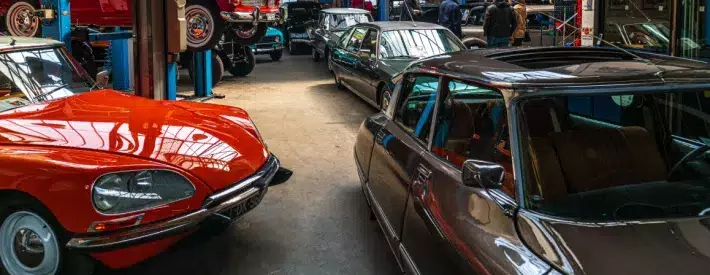Keeping classic cars on the road

It’s easy to be swept away with discussions surrounding alternative fuels and the future of propulsion. But there are other aspects of the automotive industry that need discussion too.
The Historic and Classic Vehicles Alliance (HCVA) hosted an event recently to support the announcement of a significant government project that calls on automotive professionals to participate in a comprehensive review of policies affecting historic vehicles in the UK.
Driven by the Department for Transport and DVLA, the call for evidence on the treatment of historic vehicles aims to ensure that regulations are updated and aligned with the current needs and future aspirations of the sector.
Economic and cultural impact
The historic vehicle industry is a cornerstone of the UK economy, contributing an impressive £18 billion annually and employing over 100,000 people. Beyond its economic impact, the industry plays a vital role in preserving the UK's cultural heritage, showcasing the craftsmanship and engineering excellence that have defined British automotive history. From iconic classic cars to meticulously restored vintage models, these vehicles are not merely modes of transport but pieces of art that connect us with the past.
Updating policies
Despite its significance, the industry faces several bureaucratic and regulatory challenges that can hinder the preservation and restoration of historic vehicles. Current policies around vehicle registration, modifications, and restorations can often seem unnecessarily restrictive and cumbersome. This has led to inconsistencies and difficulties for professionals and enthusiasts alike, who find themselves navigating a complex and often opaque regulatory landscape.
The call for evidence is a proactive step to address these challenges. It seeks input on various aspects, including:
Registration of Historic Vehicles: Streamlining the process to ensure it is straightforward and transparent.
- Restoration Practices: Updating guidelines to reflect modern restoration techniques and technologies
- Kit-Built Vehicles: Establishing clear policies for the registration and use of vehicles built from kits
- Zero Emission Conversions: Developing regulations that allow for the conversion of classic vehicles to zero-emission propulsion systems without compromising their historical value
- Vehicle Identification Numbers (VINs): Ensuring the VIN process is clear and consistent
Get engaged
The call for evidence is an eight-week consultation period, running until July 4th, 2024. During this time, the HCVA urges all stakeholders – restorers, engineers, dealers, auctioneers, and enthusiasts – to contribute their insights and experiences. The goal is to gather a wide range of perspectives that will help shape policies that are not only fit for purpose but also supportive of the industry's growth and sustainability.
Taking part is simple, going either through the HCVA's official channels or using the government website to give feedback.
Updating policies isn’t just about preserving the past; it's about ensuring a vibrant future for the historic vehicle industry. As technology advances, so too must the regulations that govern how these vehicles are maintained, restored, and enjoyed. Embracing innovations such as zero-emission conversions can help the industry remain relevant and sustainable, balancing heritage with modern environmental considerations and motorist expectations in a fair and workable framework.
Want to have you voice heard, give your feedback to the call for evidence launched on how to future-proof classic cars and back drivers




